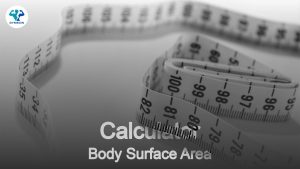Pre-workout supplements can have side effects like increased heart rate and anxiety, especially if overused. It’s essential to consult a healthcare professional before starting any supplement regimen.
If you’ve ever hit the gym, you’ve probably heard about pre-workout supplements. They’re super popular among fitness enthusiasts, but there’s a lot of chatter about whether they’re actually good for you or not. So, let’s dive into this topic and figure out what’s really going on with pre-workouts.
What Are Pre-Workout Supplements?
Pre-workout supplements are designed to give you a boost before you hit the gym. They usually come in powder form that you mix with water and drink about 30 minutes before your workout. The idea is to enhance your energy, focus, and performance. Common ingredients include caffeine, beta-alanine, creatine, and various vitamins and minerals.
Why Do People Use Pre-Workout?
Energy Boost
One of the main reasons folks reach for pre-workout is for that extra energy kick. If you’re feeling sluggish after a long day, a scoop of pre-workout can help you power through your workout. Caffeine is a big player here, as it can help improve endurance and reduce the perception of fatigue.
Improved Focus
Ever find yourself zoning out during a workout? Pre-workouts can help with that too! Many of them contain ingredients that enhance mental clarity and focus, making it easier to stay in the zone while you’re lifting weights or doing cardio.
Enhanced Performance
Some people swear by pre-workouts for better performance. Ingredients like creatine and beta-alanine can help improve strength and endurance, allowing you to push harder and get more out of your workouts.
Are There Any Downsides?
Jitters and Anxiety
While the energy boost can be great, it can also come with a downside. Too much caffeine can lead to jitters, anxiety, and even heart palpitations. If you’re sensitive to caffeine, you might want to skip the pre-workout or choose one with lower caffeine content.
Digestive Issues
Some people experience stomach discomfort after taking pre-workout. Ingredients like beta-alanine can cause a tingling sensation, and others might upset your stomach. If you find yourself running to the bathroom mid-workout, it might be time to rethink your pre-workout choice.
Sleep Disruption
Taking pre-workout too close to bedtime can mess with your sleep. The caffeine and other stimulants can keep you wired when you should be winding down. If you’re working out in the evening, consider a non-stimulant pre-workout or skip it altogether.
Who Should Avoid Pre-Workout?
Those with Heart Conditions
If you have any heart issues or high blood pressure, it’s best to steer clear of pre-workouts. The stimulants can put extra strain on your heart, which isn’t a good idea if you’re already dealing with health problems.
Pregnant or Nursing Women
If you’re pregnant or breastfeeding, it’s a good idea to avoid pre-workouts. The ingredients can affect your body and your baby, so it’s better to play it safe.
People Sensitive to Stimulants
If you know you’re sensitive to caffeine or other stimulants, you might want to skip pre-workouts or look for ones that are stimulant-free. There are plenty of options out there that can still give you a boost without the jitters.
How to Choose the Right Pre-Workout
Read the Label
Before you buy a pre-workout, take a good look at the label. Check the ingredients and the caffeine content. If you see a long list of ingredients you can’t pronounce, it might be best to pass.
Start with a Lower Dose
If you’re new to pre-workouts, start with a smaller dose to see how your body reacts. You can always increase it later if you feel comfortable.
Consider Your Goals
Think about what you want to achieve with your workouts. If you’re looking for endurance, you might want a pre-workout with beta-alanine. If you need a serious energy boost, go for one with higher caffeine.
Alternatives to Pre-Workout
Natural Energy Boosters
If you’re not keen on pre-workouts, there are plenty of natural ways to boost your energy. A good night’s sleep, staying hydrated, and eating a balanced meal before your workout can do wonders.
Coffee or Tea
If you love caffeine but want to keep it simple, a cup of coffee or tea can be a great alternative. They provide a nice energy boost without all the extra ingredients found in pre-workouts.
BCAAs
Branched-chain amino acids (BCAAs) can help with muscle recovery and reduce fatigue during workouts. They’re a good option if you want something lighter than a full pre-workout.




